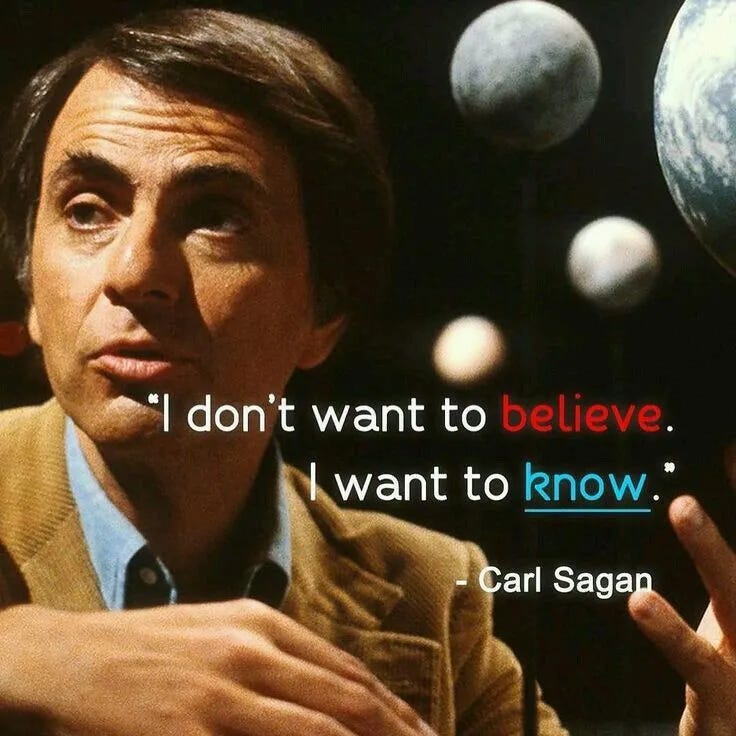The Difference Between Believing and Knowing
A framework for discerning truth from lies — and for replacing belief with grounded knowledge
Carl Sagan, the famous mainstream astrophysicist who Neil deGrasse Tyson was a protégé of, once accurately said, “I don’t want to believe; I want to know.”
As flawed as modern science is with its ideologies and practices, this quote contains a tremendous amount of truth.
There is a subtle — but impactful — difference between the two words: believing vs knowing.
For one, as I stated in my article How Words Enslave, if we break down the word “believe,” it presents itself as a form of lying. From that article, we read:
Believe
Be — a state of existence
Lie — a falsehood
Ve — a symbolic marker of completion, as in have, receive, achieve
When you ‘believe,’ you’re not questioning — you’re in a state where the lie has already been accepted and internalized.
Second, there’s an intellectual stronghold when you know something versus when you believe something. The following video breaks this down tremendously within the first 45 seconds.
The takeaway is that you don’t believe what you know.
You know it’s so, so there’s no reason to believe.
On this Substack, there are many “unorthodox truths” being revealed. Some state that these truths presented are simply a different form of “belief” of what may have occurred.
Within this article, I’d like to challenge that notion by explaining why the revelations discussed here are probably true.
To do this, we have to break things down so we can understand the whole picture. Here’s how we’ll do so:
First, we need to understand that our universe is probabilistic, mathematical and has a divine logic to it.
Next, we need to realize that even though there’s a logic here, there are things that we will just not know – due to limitations, erasures, etc.,
Third, however, by understanding the rationale of logic that makes up reality, we can identify what facts are “more true” than those that are not,
Finally, based on this understanding, we can eliminate the notion of “believing” in things and instead establish our confidence in knowing the probabilistic truth.
As always, this is sure to be a fascinating topic —and I’m presenting this read to my paid subscribers as a way to express my gratitude for your ongoing support. As a writer, your support means a great deal and motivates me to keep going.
So, without further ado, let’s dive in.
Keep reading with a 7-day free trial
Subscribe to Unorthodoxy to keep reading this post and get 7 days of free access to the full post archives.





